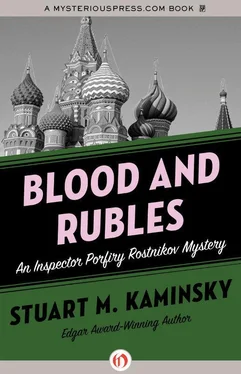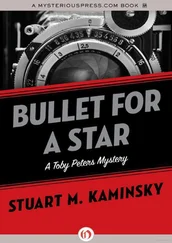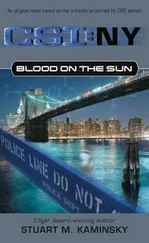Stuart Kaminsky - Blood and Rubles
Здесь есть возможность читать онлайн «Stuart Kaminsky - Blood and Rubles» весь текст электронной книги совершенно бесплатно (целиком полную версию без сокращений). В некоторых случаях можно слушать аудио, скачать через торрент в формате fb2 и присутствует краткое содержание. Год выпуска: 2012, Жанр: Полицейский детектив, на английском языке. Описание произведения, (предисловие) а так же отзывы посетителей доступны на портале библиотеки ЛибКат.
- Название:Blood and Rubles
- Автор:
- Жанр:
- Год:2012
- ISBN:нет данных
- Рейтинг книги:3 / 5. Голосов: 1
-
Избранное:Добавить в избранное
- Отзывы:
-
Ваша оценка:
- 60
- 1
- 2
- 3
- 4
- 5
Blood and Rubles: краткое содержание, описание и аннотация
Предлагаем к чтению аннотацию, описание, краткое содержание или предисловие (зависит от того, что написал сам автор книги «Blood and Rubles»). Если вы не нашли необходимую информацию о книге — напишите в комментариях, мы постараемся отыскать её.
Blood and Rubles — читать онлайн бесплатно полную книгу (весь текст) целиком
Ниже представлен текст книги, разбитый по страницам. Система сохранения места последней прочитанной страницы, позволяет с удобством читать онлайн бесплатно книгу «Blood and Rubles», без необходимости каждый раз заново искать на чём Вы остановились. Поставьте закладку, и сможете в любой момент перейти на страницу, на которой закончили чтение.
Интервал:
Закладка:
“Neighbors,” Dmitra said confidently. “I’ll give you names of people who live on the same street where our Oleg was murdered last night. You can tell them you talked to me, that you are friends of mine.”
The prospect of two real detectives saying they were her friends had great appeal for Dmitra.
“I’ll write their names and addresses for you.” She fished a small pad from a great kangaroolike pocket in her sweater.
While she wrote, Zelach pleaded with his eyes for Sasha’s permission to reach for another biscuit or two. Sasha ignored him and finished his tea.
“There,” said Dmitra. She handed Sasha the list.
“Thank you,” he said, glancing at the brief list of names. He took out his notebook and inserted the sheet of paper inside it for protection.
Then Sasha stood up. Zelach joined him and so did Dmitra.
“You hardly touched the biscuits,” she said. “Here, let me give you each a box to take home.”
“We …” Sasha began, but she had already hurried to a cupboard in the corner.
She was back almost instantly with two small blue cardboard boxes covered with Polish words. She held them out, and Zelach took his instantly. Sasha hesitated for an instant and then imagined the look on his daughter Pulcharia’s face when he presented her with the biscuits. He took them, said “Thanks,” and hurried Zelach out of the apartment.
“Let me know if I can help any further,” Dmitra called down the hall as the policemen departed.
“We will,” said Sasha.
When the thin woman had closed the door, Zelach grinned and held up his blue box from Poland. “You know what they call these in America?” he asked. “Cookie. My mother loves them.”
Zelach lived with his old mother in a small apartment. For years he had taken care of her through her various maladies. When Zelach had been savagely beaten recently, she had pulled herself from her bed and taken care of her only child. It had made a new and healthier woman of her.
They hurried down the steps past the graffiti-filled walls and out into the street. Zelach was still grinning. He had plunged the package into the pocket of his jacket. He looked a bit odd to Sasha.
“Are you all right?”
“A bit dizzy,” said Zelach. “Fine, just a bit dizzy. I have medicine for it at home, but sometimes I feel good and forget. I’ll be fine.”
So Sasha Tkach, his own biscuit box in his pocket, walked down the street, keeping an eye on his partner. Just what every investigator needs, he thought, a partner who might suddenly pass out on him.
THREE
“Turn at the next corner,” Rostnikov said in Russian. “Turn left. Cautiously. The street is narrow and the population surly at this hour.”
The FBI agent turned the car to the left. The movement was smooth, and there were no pedestrians in sight for at least half a block.
“Why are they surly at this hour?” Hamilton asked without looking over at his passenger.
“Fear, hunger, political dissatisfaction, low-paying jobs, problems at home,” said Rostnikov.
“Is it different at another hour?” Hamilton asked.
“Not really,” said Rostnikov, looking out of the window. “Would you rather speak English?”
“Not particularly. I prefer the practice.”
Rostnikov nodded in understanding. “You are a Negro,” he said.
Hamilton smiled. “You noticed,” he said.
“No,” Rostnikov went on, trying to adjust his left leg into a less painful position. “I mean that it is unusual. The few dark-skinned people we see are from Africa or, sometimes, Cuba. Diplomats. You are the first American Negro I have met. But I wondered why they had decided to send you to Moscow. You stick out like a sore … tongue.”
“Thumb,” Hamilton corrected. “I speak Russian and know the culture and politics reasonably well.”
Rostnikov nodded and said, “Public relations.”
This time Hamilton smiled more broadly. “More than a bit of that too.”
“Is this conversation making you uncomfortable?”
“No,” said Hamilton.
“Good. Do you know Ed McBain?”
“Ed … Mystery writer?”
“Yes. Do you know him?”
“Personally, no. I haven’t read anything by him either.”
“Fine writer,” said Rostnikov with a sigh. “I was wondering if you or any members of your staff might have one of his books with you that I might borrow.”
“I’ll ask,” said Hamilton, slowing down so that an old man walking a dog could cross in front of them. The man and the dog moved very slowly. Hamilton had to stop.
“Most Moscow drivers would simply have slowed down a little and tried to miss them,” said Rostnikov.
“The pedestrian does not have the right of way?”
“The pedestrian doesn’t have much of anything,” said Rostnikov. “There, the white building. Second one. Where the policeman is standing.”
“At the meeting,” Hamilton said, “you assigned a detective to a case involving the murder of someone he knew.”
“Karpo,” said Rostnikov. “He … they were very close.”
“In the States we would be sure that a detective or agent was not assigned to a case involving someone he knew well,” said Hamilton. “Objectivity breaks down.”
“Perhaps,” said Rostnikov. “But determination replaces it. When you meet Inspector Karpo, you will understand.”
There were cars on the street, but parking was relatively easy. The cars tended to look new, American and French. This was a street of large apartments and wealthy people, many of whom, like Alexei Porvinovich, had become wealthy with the collapse of Communism and the rise of an insane free market. In front of the door a uniformed policeman with an automatic weapon looked at the pair getting out of the car and stood a little more erect.
“The hood ornament,” said Rostnikov, easing himself slowly out of the car. “Can you remove it?”
“Don’t know,” said Hamilton, who was by now standing on the sidewalk. “It’s an embassy vehicle.”
“If it can be removed, remove it and lock it in the car-under the seat where it cannot be seen,” said Rostnikov, locking his door and looking up at the building.
“But there’s an armed policeman standing twenty feet away,” said the FBI agent.
“The danger is not necessarily decreased by that fact,” said Rostnikov.
Hamilton moved to the hood, unscrewed the shiny ornament, and looked at Rostnikov with his trophy in hand.
“Windscreen wipers,” said Rostnikov, stepping up on the curb.
Hamilton removed the windshield wipers and looked at Rostnikov, who nodded.
“On the floor of the car,” Rostnikov said. “If they see it on the seat, they might break the window.”
“What if they steal the car?”
“Then it is gone forever,” said Rostnikov. “Things disappear quickly and forever in today’s Russia, not unlike yesterday’s Russia. Tell me, in the United States would they call this a skyscraper?”
Hamilton locked the car door and looked up at the twelve-story building before answering.
“Not even close.”
The armed young man stepped in front of them at the door, and Rostnikov flipped open his wallet to show his identification. The armed young man looked quickly, nodded, and stepped out of the way. Hamilton and Rostnikov entered the small hallway of the building and found the doorbell marked PORVINOVICH. An answering ring popped open the inner door.
Again Hamilton smiled.
“May I ask what amuses you?” asked Rostnikov as they moved across the green-tiled floor of the empty lobby.
“That lock wouldn’t keep out the most inept burglar.”
“Nor would a better lock,” said Rostnikov as they arrived at the elevator in the corner of the lobby. “The most inept burglar would simply break a pane of glass or kick in a panel. The door is designed to keep out the innocent and discourage the guilty. Tell me, what do you think of the actor Denzel Washington?”
Читать дальшеИнтервал:
Закладка:
Похожие книги на «Blood and Rubles»
Представляем Вашему вниманию похожие книги на «Blood and Rubles» списком для выбора. Мы отобрали схожую по названию и смыслу литературу в надежде предоставить читателям больше вариантов отыскать новые, интересные, ещё непрочитанные произведения.
Обсуждение, отзывы о книге «Blood and Rubles» и просто собственные мнения читателей. Оставьте ваши комментарии, напишите, что Вы думаете о произведении, его смысле или главных героях. Укажите что конкретно понравилось, а что нет, и почему Вы так считаете.












